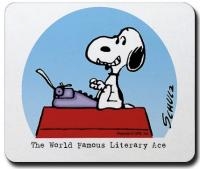And I question whether or not anyone who calls QoS "Flemingesque" has really read much Fleming, because Ian Fleming's novels all painted the portrait of exotic cities, elegant high society living, flamboyant, larger-than-life villains with interesting schemes and henchmen, action, and adventure.
Some of these elements are present in QoS. Exotic locales include Haiti, Sienna and Bolivia, not to mention wherever Mathis's house was, and each is presented with a touristic zest that has been absent from so many of the preceding Bond films; the travelogue aspect really comes through, especially in the local color inserts. We also get high-society living in the opera and fundraising scenes, and though Greene's scheme is disappointingly uninvolving, as a villain he could have walked out of Fleming (I actually wish Amalric, with his demonic black eyes, had played LeChiffre instead of Mads Whats-his-face). In other respects you are right: Greene's scheme lacks urgency, and aside from the scaffold fight, the action scenes are forgettable, and--thanks to the editing--sometimes unwatchable. And while Bond might not haved bonked Gala Brand in MR, he at least got to kiss her and see her naked, whereas QoS seems embarrassed by Camille's sex appeal. Fleming was always quite clear on the therapeutic value of sex with Bond for a bird with a wing down. I think QoS's real triumphs are in art direction--the element that makes the tourist and luxury scenes seem truly opulent--and in the comprehensiveness of its character arcs. The last element is perhaps not very Fleming-like because, as Spynovelfan points out, Fleming was not a consistent writer, and though Bond's character changes, it often does so in a haphazard manner. In contrast, Haggis and company have made each major protagonist--Bond, Camille, M, and Leiter--go through an arc where they gain greater self-knowledge, independence, and peace of mind. In "serious" drama this sort of thing is par for the course, but in a Bond movie it's practically revolutionary. And I have to admit that I enjoyed seeing the loose ends of CR tied up in a way Fleming neglected.
In some ways, the angst and moral ambiguity of CR were there to be gotten out of the way and be cleared off the table so that Fleming could proceed to the straight-ahead adventure story format of LALD and MR. Having tipped his hat to these darker elements, Fleming could now disregard them in his future books. This perhaps is why Bond doesn't spend any time grieving over Vesper in LALD. He is not quite a cold machine, but he is a "wonderful machine" since he is certainly much less reflective and moody than in CR and now perfectly suited for action heroics. It's only in DAF that Bond begins to resume the emotional inner life he had in CR, thanks to a new element introduced into the series: the bird with a wing down who awakens Bond's caring side.
Whereas Fleming started his hero off with an emotional crisis and then made him into an action machine, the movies did the opposite--after the action robotics of most of the preceding films, Bond got his emotional crisis in CR. And since the mass audience has now grown sophisticated enough (thanks more to TV than film) to expect such things as "character arcs" and intricate long-running storylines, Bond now has a character arc of his own and a continuing entanglement with Vesper's legacy.
Ironically these very elements--which are better suited for TV than film--might have contributed to the film's somewhat mixed reception. QoS is a direct sequel that's best enjoyed with a very fresh and clear memory of what happened in the preceding film--and it is very unlikely that the average movie-goer was in such a state. Some of the intricate connections between CR and QooS quite likely were missed by the public and critics, who ended up thinking the movie was neither fish nor fowl. Many of the critical reviews I read faulted the movie as being a more conventional Bond film than CR, thanks to its more traditional story structure and characters. Such critics and moviegoers, having not fully appreciated the film's storytelling with relation to CR, would then say "since this is a more conventional Bond movie, why don't we at least get to enjoy the usual Bond-movie attributes, instead of having them muted?" These reactions did not prevent the film from being a box office success, but that is because QoS rode in on the wake of CR's success. The real measure of QoS's influence will be how the next Bond film does, and whether QoS encourages people to see it in the way that CR encouraged people to see QoS.
Edited by Revelator, 10 March 2009 - 07:20 PM.









